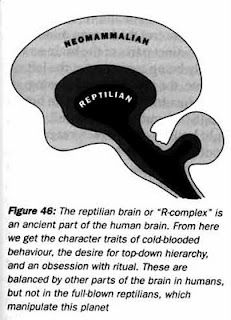 The activity is portrayed as simple, but it takes our skills to their limit; stretching our motor and spatial skills, planning ability, timing, pushing our senses of hearing, smell, sight and touch, interrogating our feeling for things mechanical, and to further the complexity of the task, a driver needs an understanding of the weather and how it affects the car’s dynamics.
The activity is portrayed as simple, but it takes our skills to their limit; stretching our motor and spatial skills, planning ability, timing, pushing our senses of hearing, smell, sight and touch, interrogating our feeling for things mechanical, and to further the complexity of the task, a driver needs an understanding of the weather and how it affects the car’s dynamics.Most are familiar with driving to the extent that it becomes almost instinctual, a sort of reptilian old brain activity that lumps, wrongly, that incredibly complex task in with breathing and other unconscious tasks of simply staying alive.
For some, driving is like breathing, but for others their breathing often becomes somewhat laboured and irregular, an irregularity that can result in serious accidents or death.
Although driving is complex and difficult, there is one task that is strikingly simple, easy and requires little forethought or planning and if adhered to can make driving safer for all road users.
Next to sitting behind the wheel, using the car’s turning indicators is nothing more than a flick of the finger - one flick, at the appropriate time and all other nearby road users are aware of your intentions.
It does, however, put the driver under some pressure, for although it is the simplest of tasks, it requires forethought, planning, the most minor of physical effort and, critically, consideration for others.
As a cyclist there are just a couple of things I want from fellow road users, beyond not killing me - early and consistent use of turning indicators and, critically, eye contact.
Many drivers are courteous and that is appreciated, but some assume ownership of the road and within that they frequently take privileges, rights that often see them exceed existing road rules.
Those drivers see the road rules as mandatory for everyone else, but simply guidelines for them only to be followed when it’s convenient.
Some cyclists behave in similar ways and so they, along with other road users, also need to be aware that behaviour based on the reptilian brain, instinct and raw survival is not appropriate for rule-based road sharing.
Motor cars, according to columnist with Great Britain’s Guardian, GeorgeMonbiot, are isolationist and individualistic, two things that are diametrically opposed to common and safe road use.
Pedestrians rarely have collisions and that can be explained in many ways, but the principle reason is the courtesy we extend to our fellows.
Also, motor cars, because of what they are, effectively a metal cocoon, isolate us from our larger environment and psychologically insulate people from the almost certain tragedies that haunt motorists.

No comments:
Post a Comment